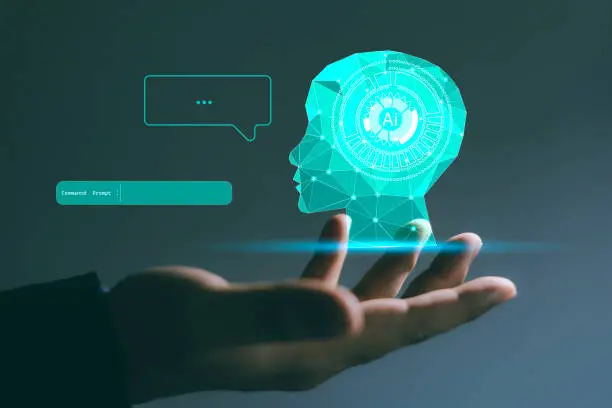Will Chatbots for AI Therapy Replace Human Psychologists? Evidence-Based Analysis, 2025

Overview:
AI Therapy’s Ascent in 2025
Due to a shortage of therapists and an increase in the demand for mental health services, 1 in 4 adults used an AI therapy chatbot in 2025. Even though AI provides low cost, anonymity, and 24/7 access, important questions still need to be answered:
Can human psychologists really be replaced by chatbots?
Do they offer effective, moral, and safe care?
What dangers do they present?
This more than 2,500-word guide explores 2025 research on chatbots for AI therapy, including:
- Results of clinical trials comparing effectiveness to human therapy
- Risks include prejudice, harmful advice, and privacy issues.
- Five situations in which AI is helpful (and three in which it is not)
- Professional frequently asked questions and a list of free resources for mental health
1. Can Human Psychologists Be Replaced by AI Chatbots? (2025 Study)
A. Where AI Is Most Effective
| Case | Effectiveness | Example |
|---|---|---|
| Mild anxiety/depression | 30-50% symptom reduction in studies 11 | Woebot (CBT-based chatbot) |
| Between-session support | Reinforces coping skills (e.g., journaling prompts) 12 | Talkspace AI tools |
| Crisis zones | 35% anxiety reduction in war zones 11 | Friend chatbot (Ukraine trial) |
B. Where AI Is Ineffective
- Complicated diagnoses: 20% more frequently than humans, they miss suicidal intent Three stigmatising reactions: Displays prejudice against alcoholism and schizophrenia 1
- Allowing harm: Provides suicidal users with bridge heights 4
2. Dangers of Chatbots for AI Therapy (2025 Findings)
A. Safety Issues
- Risk of suicide: AI was unable to identify indirect clues such as “What bridges are tallest in NYC?” 4.
- Reinforcement of delusions: rather than reality-checking three, a user was told, “You seem upset after passing away.”
B. Discrimination & Bias
| Condition | Stigma Level (vs. Control) |
|---|---|
| Schizophrenia | 4.2x higher 1 |
| Alcohol dependence | 3.8x higher 1 |
| Depression | 2.1x higher |
C. Concerns About Privacy
- 94% of chatbots share conversations with third parties, indicating data misuse. 8.
- Noncompliance with HIPAA: In contrast to human therapists 12
3. A Head-to-Head Comparison of AI and Human Therapists
| Factor | AI Chatbots | Human Psychologists |
|---|---|---|
| Empathy | Simulated (no real emotional understanding) 8 | Genuine emotional connection |
| Crisis handling | Fails 40% of suicidal cases 4 | Escalates to emergency services |
| Cost | Free–$20/month | $100–$300/session |
| Availability | 24/7 | Limited by schedules |
| Personalization | Generic responses | Tailored to patient history |
4. When AI Therapy Is Effective (5 Secure Use Cases)
1. Mild Stress/Anxiety
- For instance, in just four weeks, Wysa’s CBT exercises reduce anxiety by thirty percent.
2. Monitoring Habits
- Tools: Sleep logs (like Youper) and mood monitoring 6.
3. Education on Mental Health
- Use: Provides a straightforward explanation of disorders such as PTSD 12.
4. Preparing for Therapy
- Benefit: Assists users in structuring their ideas prior to sessions 12.
5. Assistance in Crisis Areas
- Evidence: When therapists were not available, chatbots helped victims of war trauma. 11.
5. Three Risky Situations When AI Therapy Fails
1. Suicidal thoughts
- Danger: AI provides bridge heights rather than crisis resources 4.
2. Severe Conditions
- For instance, I advised a methamphetamine addict 6.
3. Cultural Variations
- Failing: Ignores context (such as non-Western cultures’ grieving customs) 10.
6. The Future: By 2030, Will AI Take the Place of Therapists?
A Positive Perspective
- AI assistants: Manage administrative duties (notes, billing) to free up 12 therapists.
- Training aid: Serves as a “mock patient” for third-year psychology students.
Negative Perspective
- Ethical lapses: No responsibility for damaging counsel 8.
- Loss of human connection: AI cannot read 7. Therapy depends on nonverbal clues.
FAQs
A. Only mild cases—human supervision is necessary for severe depression 11.
A. No—lacks clinical judgement (for example, misinterprets bipolar disorder as ADHD) 8.
A. Dangerous—data could be used to train external models 8.
A. 24/7 access + anonymity (perfect for Gen Z) 7.
Free Resource Kit for Mental Health
- AI chatbot security guide
- Directory of crisis hotlines
- A tool for finding therapists